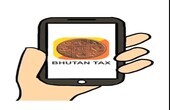WCO Customs Environment Scan (July 2016 update)
The WCO Customs Environmental Scan includes economic, political, social, environmental, and administrative subjects that directly or indirectly relate to Customs. The Scan is intended to inform WCO Members and stakeholders of relevant issues and also to support the development of the WCO Strategic Plan. Key developments include:
Macroeconomic Indicators
- Growth in the volume of world merchandise trade has slowed in recent years and this is expected to continue. Some economists point to the role of structural factors in the slowdown in international trade growth, and have accordingly accorded the term peak trade to describe this trend.
- The US economy continued to strengthen. Deflation continues to be a major concern particularly in Europe. China is importing fewer commodities which in particular impacts the economies focused on exports of commodities.
Trade Agreements
- A growing number of WTO Members have formally accepted the WTO Agreement on Trade Facilitation (TFA). Once two-thirds of WTO Members (108) have formally accepted the TFA, it will enter into force. OECD analysis contends that improvements in the area of formalities (e.g., simplification of trade documents, streamlining of border procedures, and automation of the border process) will significantly reduce trade costs. While TFA implementation will likely take many years in developing countries, the process will likely positively impact donor funding for Customs reform and modernisation.
- 109 trade deals were completed in the five-year period of 2010-2014.
- The draft Trans-Pacific Partnership (TPP) agreement is being considered by the governments of signatories.
Customs Organizational Structure
- There has been a slight increase in Revenue Authorities from 43 in 2013 to 51 in 2015.
Political, Social, Technological, and Environmental Influences
- Information and Communications Technology (ICT) or “Digital Customs” continues to expand in the Customs workplace. From the use of ICT in office automation, to the use of the Internet to publish and disseminate information, to the use of automated clearance systems to make declarations, perform risk management, undertake validation and processing, and eventually to issue approvals, ICT has transformed the way that Customs and governments operate. Accordingly, the WCO Secretary General chose “Digital Customs” as the WCO’s annual theme. The Digital Customs initiative aims to replace paper-based Customs procedures with electronic operations, thus creating a more efficient and modern Customs environment in tune with global developments.
- The United Nations adopted 17 Sustainable Development Goals (SDGs) in September 2015 to replace the 8 Millennium Development Goals, and performance indicators are being developed to measure implementation of those SDGs.
- Security concerns intensified around the world. The WCO adopted the Punta Cana Resolution in the context of the Customs’ role in security and launched the Security Programme which addresses specific areas of security concerns. Several governments moved to increase data collection for security purposes, such as requiring the submission by airlines of API and PNR data. How to balance data security requirements and privacy concerns continues to be under discussion. In respect of air cargo, the WCO has recently developed a Cargo Targeting System (CTS) for the air mode, which will enable risk assessment and targeting of import, export and transhipment cargo. A Container Control Programme (CCP) for the air mode has also been developed in cooperation with the UNODC, for air cargo risk profiling, and pilots are underway.
- Conflicts such as the civil wars in Afghanistan, Iraq, Libya, and Syria have created a massive refugee crisis, particularly at the borders of Europe.
- A rapid growth in illicit trafficking of cultural objects, particularly from conflict zones, and the involvement of organized criminal groups in this activity have garnered increased attention and has led to the issue being addressed by various international bodies, including the United Nations Security Council which adopted two Resolutions (2199 and 2253) in 2015 that are directly related to the problem of illicit trafficking of cultural objects.
- Several countries in the Americas have softened drug laws in terms of legalization of marijuana for recreational and medicinal purposes. Others, such as in Asia, have recently executed persons convicted of low-level narcotics smuggling.
- Cross-border e-commerce is increasing at a significant rate around the world due to advancing Internet technology, economic development in developing countries, and expansion of express delivery services and mobility of labour force.
- Many endangered species, such as elephants, rhinos, tigers and jaguars, face extinction in the near future due to poaching and the illegal trade in wildlife.
- Customs administrations and other revenue agencies continued to collect billions of dollars annually in taxes on tobacco products which contributes to fiscal and public health objectives.
- Natural disasters, including extreme weather events due to human-induced climate change, are increasingly necessitating more attention by Customs to the clearance and release of relief consignments.
- The WCO’s strategic document on anti-corruption measures is being reviewed by the G20’s Anti-Corruption Working Group.
- The social demand on public sector transparency is increasing, including in the fields of taxation and trade. In this regard, the G20 Leaders agreed to lend full support to the OECD’s Base Erosion and Profit Shifting (BEPS) initiative to tackle strategic tax avoidance and, in particular, endorsed a new single global standard for automatic exchange of information developed by the OECD to disclose the tax base that remains hidden in tax havens.




